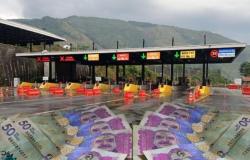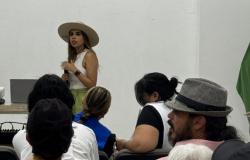
The PSOE attributes its results in Córdoba to low participation and polarizationAJ GONZÁLEZ
The general secretary of the PSOE of Córdoba and deputy in Congress, Rafi Crespínhas sent a press release to the media in which it evaluates the results of the European elections held yesterday and that leave the socialists as the second most voted force in the province of Córdoba for the first time since these elections were held. Since 1987 the PSOE had remained undefeated in Córdoba in the European elections. Last night, no socialist leader made statements at the party headquarters on Airport Avenue, where some members gathered to continue the election night.
The Andalusian PSOE, which has received a severe blow at the polls, will hold a regional executive this afternoon in Seville, while the debate on the future of the Andalusian secretary, Juan Espadas, resurfaces. For the moment, at least publicly, the provincial leadership of the Córdoba PSOE avoids bringing up the succession issue and asks to focus on the analysis of results that have relegated the party to second place in the community for the first time.
Polarization of politics
In his assessment today, Crespín attributes the electoral result mainly to the low turnout, which in turn attributes “to the polarization of Spanish politics and parties like the PP that have used these elections to talk about everything except Europe.” Despite the low participation, he has said that the results of the polls “have overturned the plebiscite that the right wanted” against Pedro Sánchez.
In a provincial key, the general secretary has thanked the trust of the 94,768 Cordobans who have voted for the PSOE, and who have made the winning match in 43 of the 77 locationsamong them Montoro, Montilla, Aguilar de la Frontera, La Carlota, Peñarroya-Pueblonuevo, Fernán Núñez or Villanueva de Córdoba.
This prevalence in the majority of municipalities has led Crespín to say that “the rural area of the province continues to prefer to endorse our progressive policies of defense of public services to guarantee their neighbors real equality wherever they live”, while at the same time considering it necessary “reflect to recover the progressive vote in the urban area and the most populated towns and cities”.
Concern about the rise of ultras
Likewise, Crespín has expressed his concern about “the rise of ultra and radical positions in Europe”, which he has described as very bad news, and has called on the parties with the option of government and status to “build a common front that protects the institutions and to the democratic system itself of the anti-Europeans who want to enter them to burst them from within.”
At this point, the socialist has stated that “it is reassuring to hear the president of the European Commission, Úrsula von der Leyen, say that the European right will come to an understanding with social democracy to isolate the extreme right”, for which she has asked the PP of Feijóo in Spain and Moreno Bonilla in Andalusia to “take note of the actions undertaken by their party in Europe and stop doing the opposite here in Spain, where they have not stopped whitewashing, giving democratic normality and reaching out to Vox”, remembering his pacts with Vox in four autonomous communities and 130 town councils, in addition to the fact that Moreno Bonilla was president in Andalusia alongside the extreme right.





